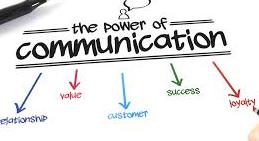One of the most important drivers of employees’ engagement is strategic communications in business, as supported by numerous research studies. Effect communication programs serve as the heart of a company by determining the flow of information among workers and managers. Good communication strategies can result in an improved financial performance. Learn more about Anne Méaux chronique sur LinkedInAnne. On the other hand, poor communications allow for information blockages that make it hard for workers to follow orders from management or managers to control employees’ performance.
Importance of strategic communications in business
Well-designed communication strategies are crucial for a company to share its strategic plans and other essential managerial information that notifies workers of the organization’s objectives and goals, product and services, and business priority.
A strategic communication will explain how the co mpany creates value for stakeholders and customers as well as its strategic focus. This approach enables employees to understand how the success of the organisation depends directly on their performance. It can also increase personal pride and drive in the organisation especially the programs ties the company’s objective to its core mission and values.
mpany creates value for stakeholders and customers as well as its strategic focus. This approach enables employees to understand how the success of the organisation depends directly on their performance. It can also increase personal pride and drive in the organisation especially the programs ties the company’s objective to its core mission and values.
Basic elements of effective strategic communications
- Using a company’s mission statement as the outline of its communications
- Identifying communication objectives
- Giving a consistent theme for business objective and organizational strategies
- Keeping messages simple and clear
Maintaining communication
Since many companies run complex communication strategies, it is more likely for information blockages to occur. This complexity makes it hard to convey and understand messages. As a result, the management must monitor and maintain the organization to ensure clear communication channels. For an instant, an organization should have training programs for new employs to prevent communication breakdown.
The senior leaders must embrace and understand the communication strategy or it to be effective. They must also pay close attention to potential resistance, concerns of each audience, objective and requirements.
Conversely, individual workers must also understand the things they need to change  and why. It is the burden of the management to express how a business change will affect employees. Also, they need to give regular and consistent information to workers on changes that impact them. Nowadays, the complex business environment is changing significantly and thus the need for more communication.
and why. It is the burden of the management to express how a business change will affect employees. Also, they need to give regular and consistent information to workers on changes that impact them. Nowadays, the complex business environment is changing significantly and thus the need for more communication.
In conclusion, well-planned communications offer the workers with the necessary tools for a more consistent and stronger expression of the company’s brand. Leaders can use effective communication to involve employees in conversations that motivate useful behaviours, and generate supports for the business strategy. It can also allow workers to participate in producing the desired change that ultimately increase the organizational value.


 lly, the performance of an activity is measured according to target audience it reaches. The profit can also be used to measure the strength andsize of a business. Thus, if you are starting a new enterprise, you must plan your strategy. Moreover, to understand your market, you need to opt for business strategy consulting. This will help you understand the market. In addition, it is good for the whole business.
lly, the performance of an activity is measured according to target audience it reaches. The profit can also be used to measure the strength andsize of a business. Thus, if you are starting a new enterprise, you must plan your strategy. Moreover, to understand your market, you need to opt for business strategy consulting. This will help you understand the market. In addition, it is good for the whole business. consultants get out plans that help you to implement. They can help you with budget planning, staff recruitment. Therefore, they provide a holistic approach, which enables you to begin your business efficiently. In any way, they help you start a new venture smoothly. You will also learn trade secrets, which ensure your business gets to new heights.
consultants get out plans that help you to implement. They can help you with budget planning, staff recruitment. Therefore, they provide a holistic approach, which enables you to begin your business efficiently. In any way, they help you start a new venture smoothly. You will also learn trade secrets, which ensure your business gets to new heights.


 You can probably use this tool to find out everything related to the images you wish to use. Besides, you can also learn more about its sources, where and who use it the most. Google search is one of the platforms that use this technology, but other search engines might use it, too. In addition to search engines, several websites have offered a reverse image search option. To use it, upload an image or enter the URL of the image into the image search site in the search tool to get the results around the image.
You can probably use this tool to find out everything related to the images you wish to use. Besides, you can also learn more about its sources, where and who use it the most. Google search is one of the platforms that use this technology, but other search engines might use it, too. In addition to search engines, several websites have offered a reverse image search option. To use it, upload an image or enter the URL of the image into the image search site in the search tool to get the results around the image. If your business has a site and publishes articles from various references, this application can benefit you from avoiding copying images since it can get you into trouble. In addition to making sure you do not use double or even triple pictures, this tool can help you find out if your initial images are being used elsewhere based on their content. Based on the results, you can determine what to do forward.
If your business has a site and publishes articles from various references, this application can benefit you from avoiding copying images since it can get you into trouble. In addition to making sure you do not use double or even triple pictures, this tool can help you find out if your initial images are being used elsewhere based on their content. Based on the results, you can determine what to do forward.